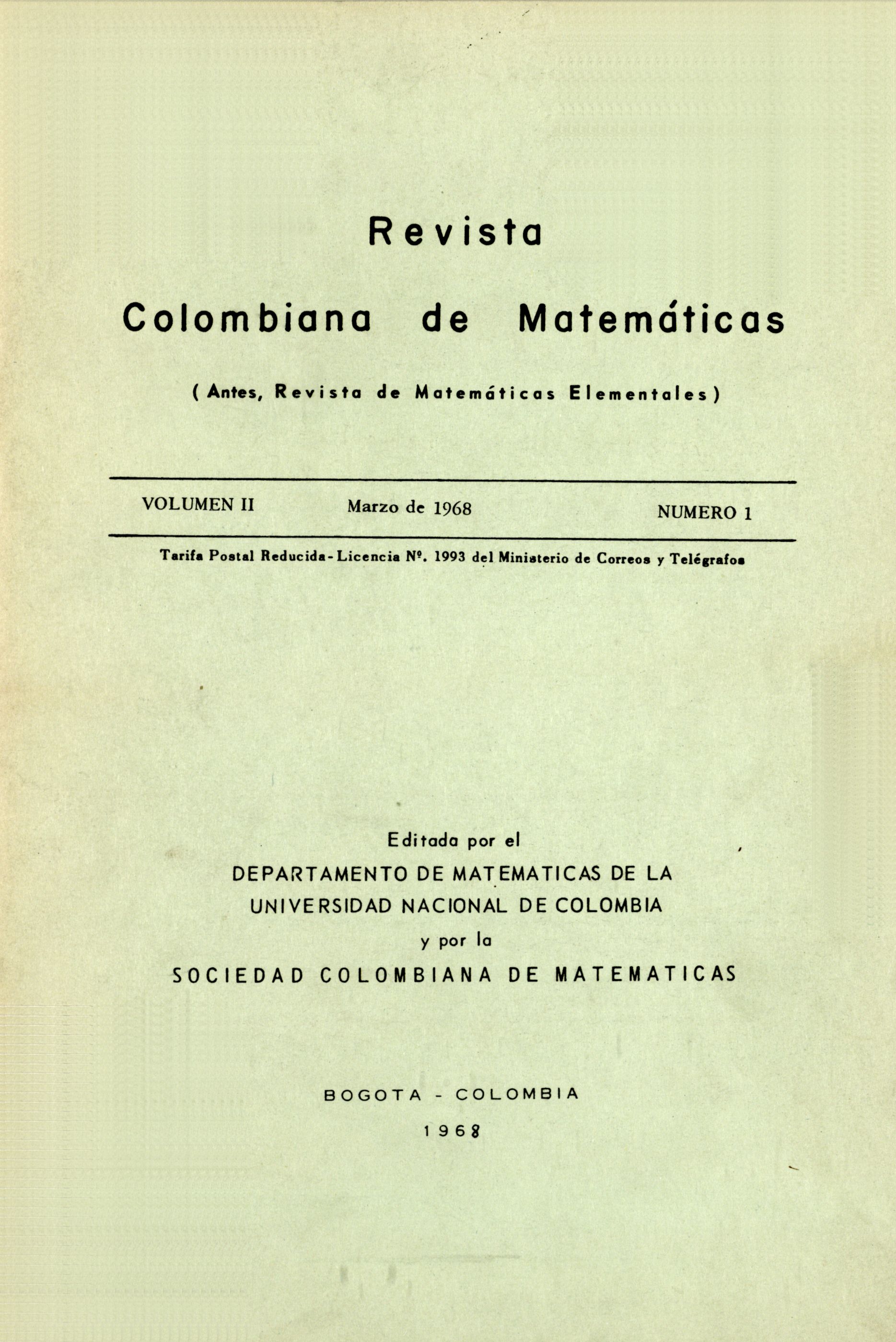Some non-maximal arithmetic groups
Palabras clave:
Teoría de los números, grupos discontinuos, grupos aritméticos (es)Descargas
Let k be a non-finite Dedekind domain, and σ be the ring of its integers. We shall assume that the ring R = σ/ (2) is finite. Let us denote by Mn (k) (resp. Mn(σ) ) the ring of all n by n matrices with entries in k (resp. in σ), and Gln (k) its group of units.
We denote by sln (k) the subgroup of Gln (k) whose elements g have determinant, det g, equal to one. Let H ε Mn (σ) be a symmetric matrix, i.e., H = tH where tH denotes the transpose matrix of H. We let G = SO (H) = { g ε Sln (k) l tgHg = H }, and we let Gσ = G∩Mn (σ). We want to exhibit certain H for which Gσ is not maxinal in G, in the sense that there exist a subgroup Δ contains Gσ properly and [Δ : Gσ] is finite.
Cómo citar
APA
ACM
ACS
ABNT
Chicago
Harvard
IEEE
MLA
Turabian
Vancouver
Descargar cita
Visitas a la página del resumen del artículo
Descargas
Licencia
Derechos de autor 1968 Revista Colombiana de Matemáticas

Esta obra está bajo una licencia internacional Creative Commons Atribución 4.0.












